STUFFology 101 REVIEW – The Life-Changing Magic of Tidying Up
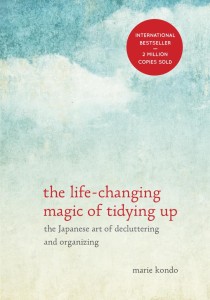 Marie Kondo’s The Life-Changing Magic of Tidying Up takes a Samurai’s approach to ridding ourselves of physical clutter.
Marie Kondo’s The Life-Changing Magic of Tidying Up takes a Samurai’s approach to ridding ourselves of physical clutter.
Written before the 2011 Tōhoku earthquake in Japan her book was released just in time to fill an urgent need of thousands of displaced families in Japan who needed to decide what to keep and what to let go.
Since then it has topped the bestseller list.
Rarely one to join the bandwagon, something drew me to this little hardcover English translation of Kondo’s book. As I read the pages, one incessant question wouldn’t go away: Who is this woman?
Who is Marie Kondo?
Very little has been published beyond the same biographical information rehashed in the media including the major media. Usually, one can find enough information online to satiate one’s curiosity; but Kondo is holding onto her privacy like Ft. Knox.
If you were going to undertake a drastic life shift by ridding yourself of mementos and even family pics, you’d want to be assured that the person advising you has a lifetime of knowledge grounded in research. What are her credentials? The best I could find is a kindergartener who loved to tidy up and a quarter century later, at age thirty, married, without children, advises us to rid ourselves of anything that doesn’t “spark joy.”
What if Kondo has children and later discovers a need to hold onto her children’s treasures? What will be her advice to those parents who hopped on the KonMari bandwagon to rid themselves of these possessions?
As a reader and STUFFologist, I am raising the red flag. Buyer beware of following a young lady who felt alone as a child and felt comforted by breathing life into her possessions. Today, due to timing and the forces of marketing (remember, the pet rock craze?), she’s a 2-million copy best-selling author without clear credentials.
What Works
Still, I do agree with a number of her ideas.
- Put things back where they belong.
- Take care of your things and they’ll take care of you.
- Fold and/or roll socks without folding over and stretching out the cuffs.
- Fold underwear compactly in threes.
- Fold and store each item vertically like books on a bookshelf, and not stacked atop one another where you’ll forget what’s at the bottom.
I do not agree with her self-admitted impatience. Although, that’s just me. I tend to be patient in our world hungry for instant fixes.
I do like organizing my clothes in my drawers and Kondo’s technique appeals to me. However, I do not agree with her technique of folding T-shirts. I’m rather meticulous in my approach and as many times as I tried, I could not find the wrinkle-free sweet spot for my cotton shirts made in the U.S.A., Vietnam, China, Nicaragua, or Jordan. Admittedly, I don’t have any made in Japan, while Kondo does.
I did apply her “Does this spark joy?” criteria to one third of the books on one of my bookshelves. IT WORKED. Yet, those that didn’t spark joy remain in a pile on the floor in front of the bookshelf with a space remaining where they once more. Now, I must take care not to stub my toe on the stack on the floor below.
Our Need for Quick Fixes
We’re a society who wants quick fixes. We want success, now. We lack patience. Kondo advises completing our decluttering in one major effort until something clicks and you’ll never have to do it again.
I’m not sure Kondo’s quick-fix click is a lifetime fix. Kondo admits to being impatient—needing it done right now. But just as eating fast food frequently results in poor health and crash diets are following by even greater weight gain, crash decluttering may result in long-term regrets. In fact, it may create an even greater problem, such as hoarding for fear of future loss.
What we need is patience and mindful accumulating of the things we need. In these ways, we develop life-changing habits for the long haul. I’m under the impression Kondo’s obsession with tidiness is due to her desire to shop and bring things into her space to feel good. Now, a walk in nature. Ahhh that feels good.

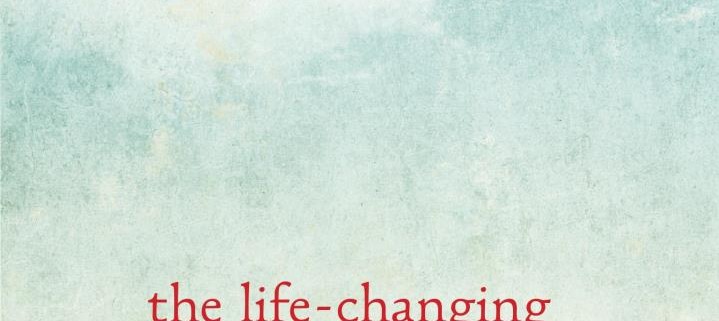
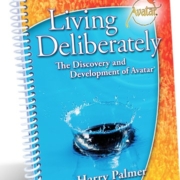

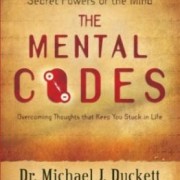
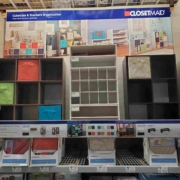
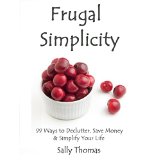
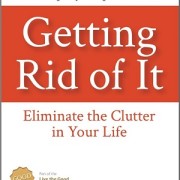
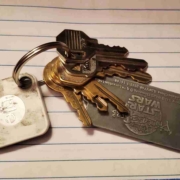
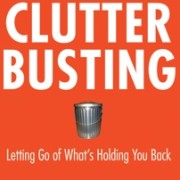


Tidying up and keeping things organized is an important aspect of our peace of mind when trying to be clutter free.
Choosing suggestions that work for us specifically fits well with our own advice in STUFFology 101. That is, a flexible customizable approach to get your mind out of the clutter.
Thank you for the reminder about quick fixes. As you say, sometimes that approach causes more problems than it solves.